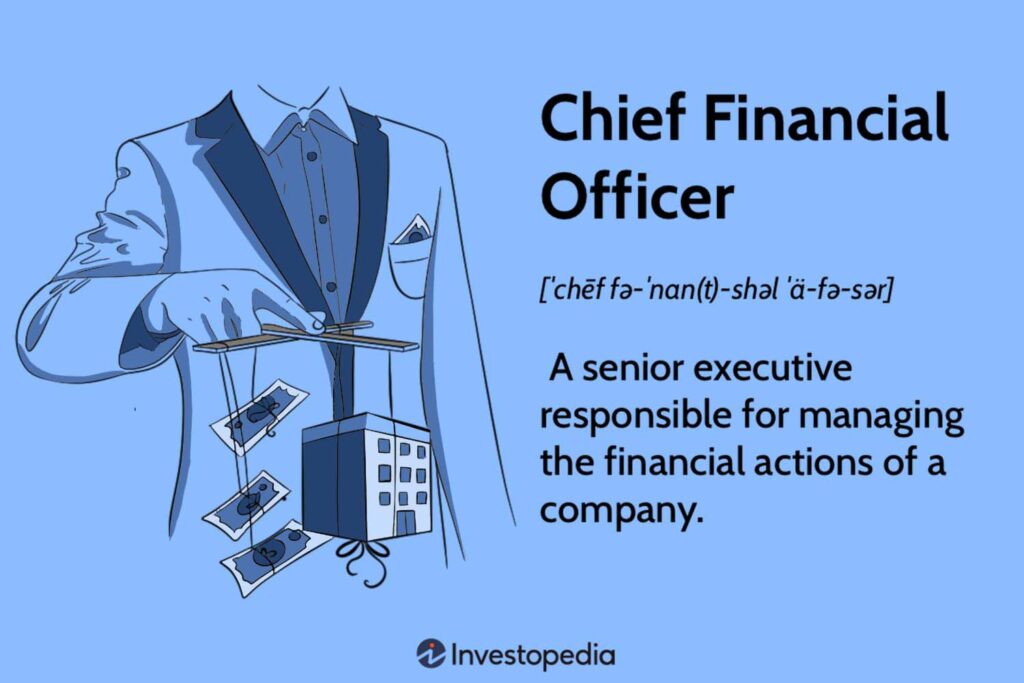Why hire a fractional leader? Finding the right leadership can be the make-or-break factor in growing a business. Whether a small startup or an established enterprise, you need the right team to achieve your goals and drive success. But what happens when your internal leadership falls short and you need experienced help to take your company to the next level? This is where the decision between traditional consulting and fractional leadership comes into play.
Traditional Consulting: What It Is and What It Isn’t
Traditional consulting has been the go-to solution for companies seeking expert guidance and support. However, this approach has its own set of shortfalls, such as:
- Lack of commitment: Traditional consultants are often engaged on a project-by-project basis, meaning they may need to commit to your company successfully.
- High cost: Hiring a consultant can be expensive, especially if you’re paying for their expertise hourly.
- No follow-through: Traditional consulting is known to be a fly-by approach that delivers a report on what to do that ends up on a shelf unimplemented.
- Limited impact: Consultants may provide valuable insights but are not always equipped to execute their recommended plans. This can lead to little impact and underwhelming results.
“Consulting is like taking a shower. You get clean, but it’s over in an hour,” says renowned business leader Peter Drucker. “Leadership, on the other hand, is a long-term investment that pays dividends for years to come.”
Peter Drucker
The traditional consulting model provides many services. Some of those include:
- Strategy
- Project management
- Data analysis
- Implementation
- Risk management
- Process improvement
- Talent acquisition
- Financial analysis
- Advisory services
Traditional consulting companies have been known for working on projects and leaving once they deliver the final report, strategy, or analysis. It’s been called a “flyby approach” run by a senior consultant, with younger analysts doing most of the research. They are not part of the organization and tend not to have a deep understanding of their challenges and goals, and the results reflect the lack of depth. Where this is a strong business training ground, customers tend to receive the level of analysis that a junior analyst’s experience can deliver. The reports tend to be put on the shelf and never used.
Primary reasons why traditional consulting is failing

Traditional consulting firms bring value but are expensive and don’t stick around until implementation is complete. Here are some of the challenges with traditional consulting:
Lack of Customer Understanding – A consultant’s fly-in and out approach needs to be revised. The team comes in, gives you a strategy and action plan, and then leaves. Someone who can truly learn and understand your business, create strategies based on those learnings, and stick around to implement those ideas is critical.
Lack of focus on customer needs – When traditional consulting firms are engaged to help an organization, they report to the client. When this happens, the focus is on the client and their needs. However, upon engagement, the customer needs to be at the center of the solution. The firm must lead with the customer rather than the firm so that they design solutions with their needs in mind. With this, the solutions will be relevant and likely to succeed.
Limited access to resources – Like other consulting firms, traditional firms often function as an extension of the firm’s resources. This extension means that clients can engage the firm but need access to the firm’s complete resources. Having this control can be an issue, as the client may be able to solve problems with less effort than the consulting firm would. This limited access can lead to solutions that do not solve the customer’s problems.
Reliance on outdated processes – Often, firms must use obsolete methods. The client may be using an antiquated system, a process that is no longer relevant, or has an issue with an existing process. These obstacles can create challenges to getting the process to operate correctly. If the solution relies on the correct approach, it may fail to solve the problem.
Limited Customer Understanding – Consultant teams don’t have the time or resources to truly get into the weeds of the customer, their challenges, and what they’ve tried. This often results in solutions that don’t make sense or have already been tried. To improve this issue, a senior-level leader must dive deeper to better understand and educate the team before starting the project.
The Rise of Fractional Leadership: Why Hire a Fractional Executive for Support
Enter fractional leadership. Hiring a fractional leader gives you access to experienced, executive-level help without the associated costs and limitations of traditional consulting. Unlike consultants, fractional leaders are fully committed to your company’s success, working alongside your team to drive growth and achieve your goals.
“A fractional leader brings a wealth of experience, knowledge, and expertise to your team, helping you overcome challenges and achieve your vision,” says Rob Thomas, Fractional CFO. “They’re committed to your success and work tirelessly to help you reach your goals.”
Robb Thomas
Fractional leaders also offer a more cost-effective solution compared to traditional consulting. Instead of paying for an expert’s time hourly, you pay a fraction of their salary for a set number of hours each month. This allows you to access high-level help without breaking the bank.
“Hiring a fractional leader gave my customers the leadership we needed to grow our business and achieve our goals. The cost was a fraction of what we would have paid for a full-time executive, and the results were amazing.”
Robb Thomas
Why hire a fractional leader? Studies have shown that companies that hire fractional leaders are more likely to experience significant growth than those that rely solely on traditional consulting. In a survey of 200 companies, 85% of those that hired a fractional leader reported considerable growth within the first year, compared to just 50% of those that used traditional consulting.
Fractional Leadership vs Traditional Consulting: A Side-by-Side Comparison

Cost-effectiveness
When it comes to cost-effectiveness, fractional leadership is the clear winner. Fractional leadership provides senior-level expertise at a fraction of the cost of hiring a full-time executive.
Flexibility
Fractional leadership offers a high degree of flexibility compared to traditional consulting. Fractional leaders can adapt to the changing needs of the company, providing the support and guidance that the company needs when it needs it.
Experience and Expertise
Fractional leaders bring a wealth of experience and expertise to the table, providing companies with the support they need to reach the next level of growth.
Commitment and Dedication
Fractional leaders are fully committed to the success of the company, providing the support and guidance needed to achieve the company’s goals.
Results-driven approach
Fractional leaders are results-driven, with a focus on executing on plans and driving growth for the company.
Types of Fractional Leaders
- Fractional COO: A fractional Chief Operating Officer provides operational and organizational support to help companies run smoothly and efficiently. They help establish and implement processes, systems, and structures to drive growth and profitability.
- Fractional CFO: A fractional Chief Financial Officer provides financial expertise, including financial planning and analysis, budgeting, and financial reporting. They help companies make informed financial decisions and manage their financial resources.
- Fractional CEO: A fractional Chief Executive Officer provides strategic leadership, overseeing the company’s overall direction and vision. They provide guidance and support to the executive team, helping to drive growth and profitability.
- Fractional CMO: A fractional Chief Marketing Officer provides marketing expertise, including marketing strategy, brand development, and customer engagement. They help companies build strong brands and drive growth through effective marketing.
- Fractional CSO (sales): A fractional Sales Leader provides sales expertise, including sales strategy, sales training, and sales management. They help companies drive revenue and achieve sales targets through effective sales strategies and processes.
- Executive Coach: An executive coach provides one-on-one coaching and support to executives, meeting with them several times per week to listen and help them talk through and solve their problems. They help executives develop their leadership skills, navigate challenging situations, and achieve their goals.
These are just a few examples of the types of fractional leaders available to companies looking for experienced and skilled support to help them reach the next level of growth.
Take the Quiz – Why Hire a Fractional Leader and Are you the right fit?
If you’re considering fractional leadership, ask yourself these five questions to determine if it’s the right fit for your business: Here are the ten questions that a company can ask itself to evaluate if they are a good fit for fractional leadership:
- Do you need experienced, executive-level leadership support but need more on your current team?
- Are you looking for a cost-effective solution compared to hiring a full-time executive?
- Are you in need of a long-term leadership solution?
- Do you need someone who can execute plans and drive results?
- Are you looking for a flexible solution that can adapt to your company’s changing needs?
- Do you want someone fully committed to your company’s success?
- Do you want to avoid the cost and commitment of hiring a full-time executive?
- Do you need someone to bring a fresh perspective and new ideas to the table?
- Are you looking for someone who can work collaboratively with your existing team?
- Do you need someone who can provide guidance and support to help your company reach the next level?
If you answered “yes” to five or more of these questions, then you are a good candidate for hiring a fractional leader. A fractional leader can bring a wealth of experience, knowledge, and expertise to your team, help you achieve your goals, and drive growth.
Advantages of Fractional Executives
A fractional executive can provide an organization with a targeted, cost-effective solution. These professionals come in and learn about your business from the inside and stay engaged with the team through product completion. They do not typically charge up-front fees, making them a cost-efficient solution for smaller businesses that need more money to invest in large-scale hiring initiatives. The expertise and specialization of fractional executives can also help strengthen organizational structures and processes within a company. As such, they can help clients identify inefficiencies and capitalize on gaps in their business model. Moreover, they can help organizations identify challenges and opportunities through their unique lenses. Access to some fractional executives’ unique skill sets can also give an organization a unique advantage. These executives often have skillsets that are rarely found in-house. For instance, some fractional executives have industry expertise or have worked in a specific sector that can help a company gain an advantage in an area of interest.
Expertise and Specialization
The expertise and specialization of fractional executives can also help strengthen organizational structures and processes within a company. As such, they can help clients identify inefficiencies and capitalize on gaps in their business model. Moreover, they can help organizations identify challenges and opportunities through their unique lenses. Access to some fractional executives’ unique skill sets can also give an organization a unique advantage. These executives often have skillsets that are not commonly found in-house. For instance, some fractional executives have industry expertise or have worked in a specific sector that can help a company gain an advantage in an area of interest. Fractional executives can also be more flexible than traditional consultants. They typically offer a project-based approach, which allows clients to hire them when they need their specialized expertise. This approach can help mitigate the risk of being overwhelmed by a full-time hire and provide more flexibility to clients.
Access to Unique Skillsets
The expertise and specialization of fractional executives can also help strengthen organizational structures and processes within a company. As such, they can help clients identify inefficiencies and capitalize on gaps in their business model. Moreover, they can help organizations identify challenges and opportunities through their unique lenses. Access to the unique skillsets of some fractional executives can also give an organization a unique advantage. These executives often have skillsets that are not commonly found in-house. For instance, some fractional executives have industry expertise or have worked in a specific sector that can help a company gain an advantage in an area of interest. Fractional executives can also be more flexible than traditional consultants. They typically offer a project-based approach, which allows clients to hire them when they need their specialized expertise. This approach is why you hire a fractional leader. It can help mitigate the risk of being overwhelmed by a full-time hire and provide more flexibility to clients.
Flexibility and Scalability
The fly-in and-out approach of a consultant needs to be revised. Fractional executives can provide an organization with a targeted, cost-effective solution. This is because these professionals typically charge by the hour. However, they do not charge up-front fees, making them a cost-efficient solution for smaller businesses that need more money to invest in large-scale hiring initiatives. The expertise and specialization of fractional executives can also help strengthen organizational structures and processes within a company. As such, they can help clients identify
inefficiencies and capitalize on gaps in their business model. Moreover, they can help organizations identify challenges and opportunities through their unique lenses. Access to some fractional executives’ unique skill sets can also give an organization a unique advantage. These executives often have skillsets that are not commonly found in-house. For instance, some fractional executives have industry expertise or have worked in a specific sector that can help a company gain an advantage in an area of interest. These advantages make fractional executives a scalable solution that can be used to solve a variety of challenges. These advantages make fractional executives a scalable solution that can be used to solve a variety of challenges. These executives are cost-efficient, have expertise and specialization in a specific area of interest, and offer access to unique skill sets.
Conclusion
When it comes to growing your business, there are pros and cons to both traditional consulting and fractional leadership. While traditional consulting may provide valuable insights, it can also be expensive and lack commitment. On the other hand, hiring a fractional leader gives you access to experienced, executive-level help without the associated costs and limitations of traditional consulting.
All options can be solid solutions for companies in different growth stages. Make sure you look at all options to generate the best outcome for your organization.
Enjoy NeoGig’s article on Why Why Hire a Fractional Leader: Traditional Consulting vs. Fractional Leadership? Read more by NeoGig:
3 Fractional Leaders that Help Grow Start-ups
5 Key Insights to The Future of Freelancing
Leveraging Fractional Executives for Innovation
Fractional CFO vs CPA: Decoding the Difference for Financial Excellence







